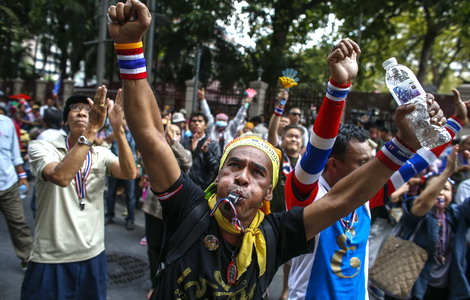S. Korea's youth unemployment rate rises
Updated: 2013-12-19 11:17
(www.asianewsnet.net/The Korea Herald)
|
||||||||
Figures released last week by the national statistics office showed South Korea’s labor market conditions were improving, with a growing number of new jobs being created.
The number of people with employment stood at 25.53 million in November, up 588,000 from a year earlier, meaning that the jobless rate has decreased by 0.1 percentage point to 2.7 percent. This year-on-year monthly increase in jobs was the largest since September last year, when 685,000 new jobs were created.
The job data has heightened optimism that the country’s economic recovery is gaining traction and translating into more job opportunities. But this optimistic view is hard to accept for a growing number of jobless youths.
According to data from Statistics South Korea, the unemployment rate for the 15-29 age group increased by 0.8 percentage points from a year earlier, hitting 7.5 percent in November. A separate report published by the central bank last week noted that the number of youths not in education, employment or training rose by nearly 150,000 over the past seven years to 724,000 last year.
More than half of the 20-somethings with a college diploma remain unemployed or have given up looking for jobs. In South Korea, about 8 in every 10 high school graduates enter university. This high proportion of well-educated youths is seen as the main reason for South Korea’s low rate of youth employment, which stands at 23 percent, ranking 29th among the 34 member states of the Organization for Economic Cooperation and Development. The OECD average is 39.5 percent.
Meanwhile, many small and medium-sized enterprises in the country suffer from a chronic shortage of manpower as most college students shun low-paying and physically challenging work. These SMEs, therefore, are compelled to compete to hire more immigrant workers, whose numbers and period of stay are limited by government regulations.
Under current labor market conditions, the job mismatch is unlikely to be solved anytime soon. There are simply too many applicants for the limited number of decent jobs offered by large businesses and state-run corporations. In a recent survey of 1,039 well-educated jobseekers in their 20s and 30s, nearly 80 percent were unsure whether they would land a job next year.
Difficulties with finding satisfactory work have led many university students to delay their graduation by taking a leave of absence or registering for extra semesters. According to data from the Ministry of Education, the number of college students who are presumed to be putting off leaving their campus rose from 73,650 in 2011 to 96,141 this year.
The country can hardly be expected to enhance its growth potential and social vitality while leaving a majority of well-educated youths out of work. As noted by many job consultants, these young jobseekers may need to lower their expectation levels. But the job mismatch is a structural problem that should be tackled with a set of active and efficient policy measures together with changes in attitude.
Regulations on service sectors such as tourism, health care and education, which can create more jobs than manufacturing industries, should be lifted drastically. It is also necessary to expand support for SMEs so that they can offer better payment and working conditions. The most effective and fundamental method may be to narrow the gap between incomes earned by college and high school graduates.
President Park Geun-hye’s administration has pushed ahead with a plan to increase the employment rate, which currently remains below 65 percent, to 70 percent by 2017, mainly by introducing a more flexible system of working hours. But there may be no point in achieving this goal if the number of jobless youths remains unchanged or even rises while older workers benefit most from the employment policy.

 Misses International shine in Tokyo
Misses International shine in Tokyo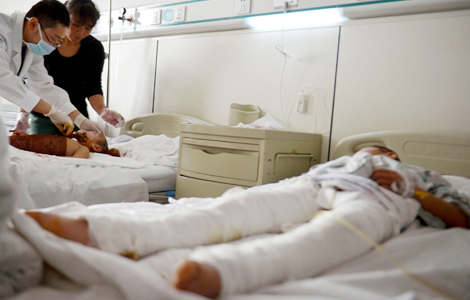
 Parents urged to supervise children's TV-viewing habits
Parents urged to supervise children's TV-viewing habits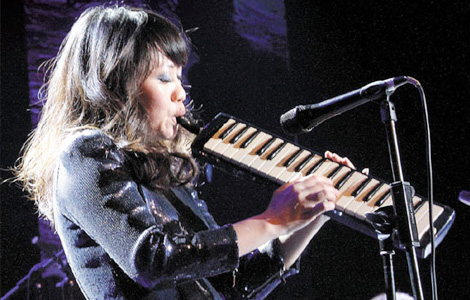
 Jazzing up Beijing
Jazzing up Beijing
 US delegation to Sochi includes gay athletes
US delegation to Sochi includes gay athletes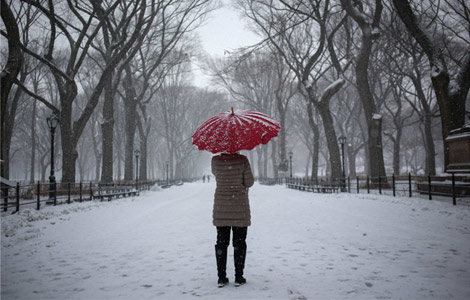
 Snow storm wallops NE USA
Snow storm wallops NE USA Russia to bail out Ukraine for $15 billion
Russia to bail out Ukraine for $15 billion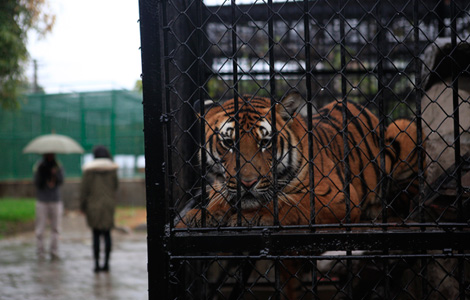
 Fatal tiger attack 'points to flaws in zoo management'
Fatal tiger attack 'points to flaws in zoo management'
 Merkel sworn in as chancellor for a third term
Merkel sworn in as chancellor for a third term
Most Viewed
Editor's Picks

|

|

|

|

|

|
Today's Top News
Baucus likely next ambassador to China
Senator Baucus to be named ambassador to China
China’s leaders must lead on clean energy: report
Treasure Island still radioactive?
Military plays down 'near-miss' between warships
Fed to cut bond purchases by $10B
Overseas investing sees large jump
China expands research in Antarctica
US Weekly

|

|



